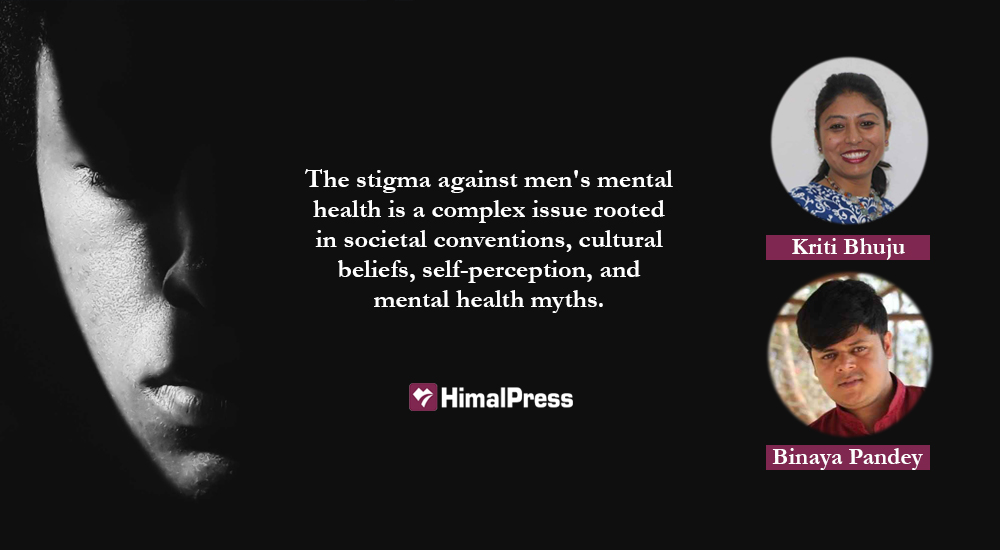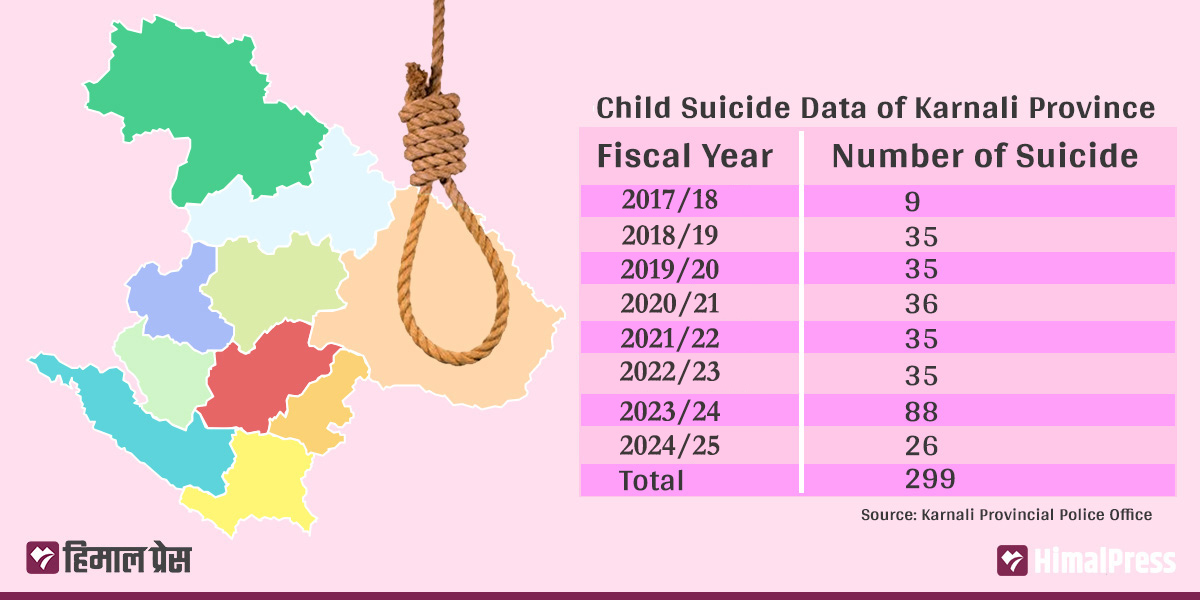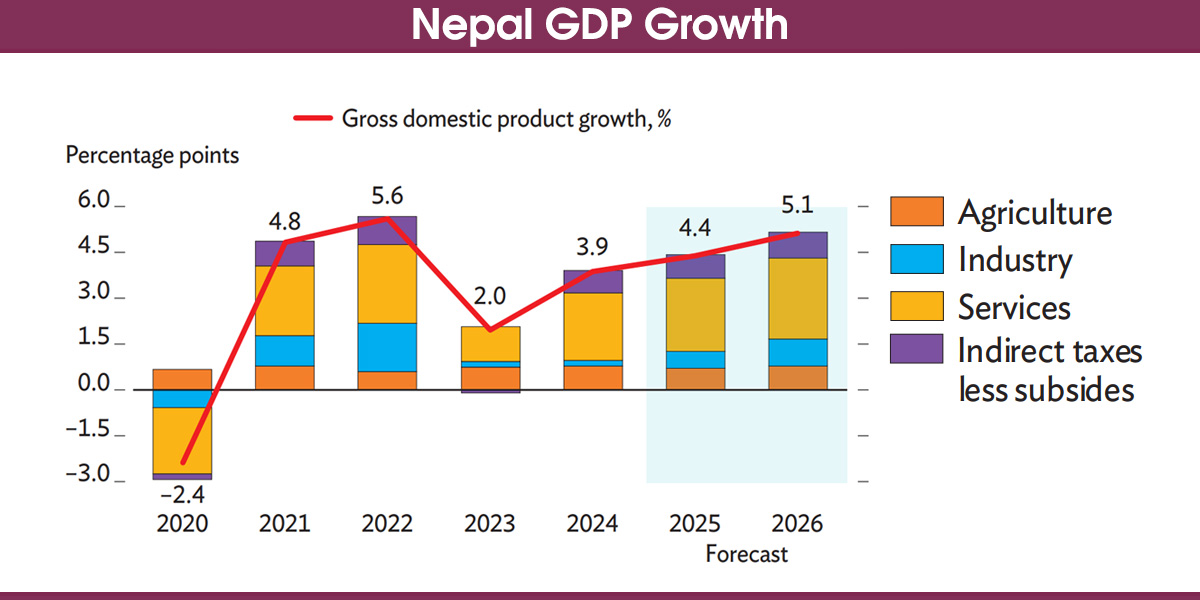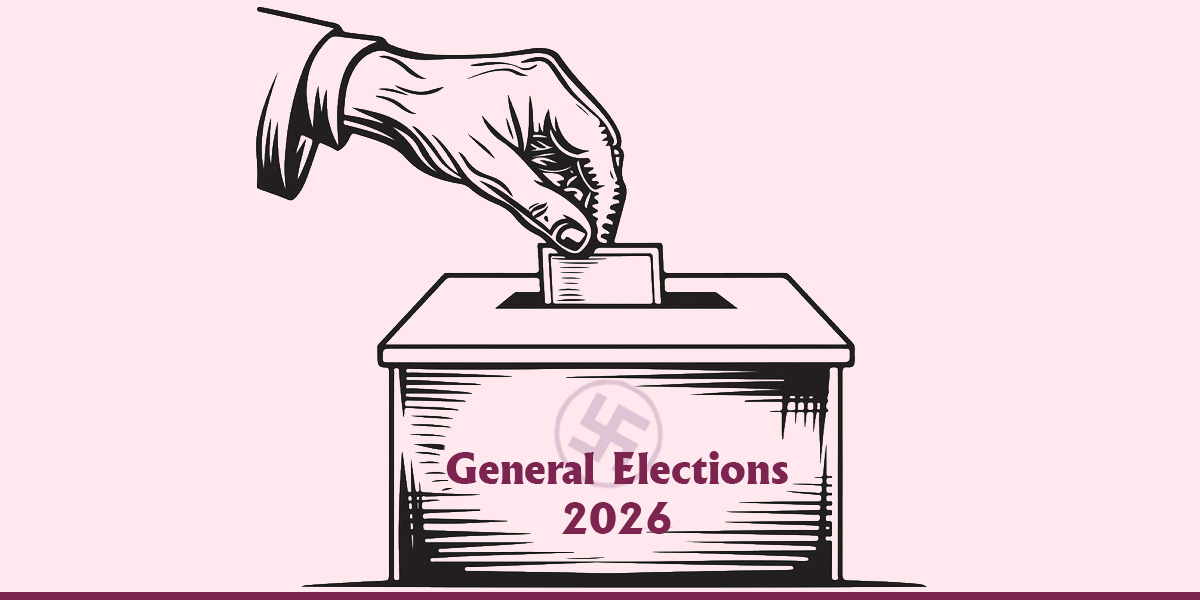
By Kriti Bhuju and Binaya Pandey
There has been tremendous progress in the field of health and science in promoting and raising awareness for physical health and well-being. Cancer, heart and lung disease, AIDS, and other STDs have started to lose their taboo status. However, mental health remains a taboo subject for many. It is not an easy topic for everyone to discuss or talk about. Our cultural and societal norms, gender expectations, and pressure to conform to masculine and feminine standards have made it challenging for men to seek help when they are struggling with mental health issues.
Men typically engage in physical exercise such as jogging, playing badminton, or going to the gym, but they often neglect their mental health. Like controlling one’s diet, alcohol intake, tobacco or other harmful substances, maintaining mental health is equally important.
Mental Fitness
So, what exactly is mental fitness? According to MensLine Australia, mental fitness is a way to take care of your mental health and yourself. It is not about mental exercises or solving puzzles. Rather, it involves taking a short break to maintain balance in your busy daily routine. Prioritizing mental health can increase one’s resilience and inner strength, equipping them to handle life’s stressors and challenges. In the same way that taking care of one’s physical health can help prevent disease, taking care of mental health can shield people from the strains and problems of daily life.
Men and Mental Health
In today’s patriarchal society, many men are confused about what it truly means to be a man. They are often perceived as more manly when they suppress their emotions and avoid discussing their feelings. Yet, when they express their emotions and feelings, they are considered emotionally sensitive. As a result, men often do not share their mental health issues.
A recent survey of 1,000 men in the UK conducted by Priory reveals that men typically do not speak up about their mental health. As many as four in 10 men will not discuss their mental health issues with close friends, family, or medical practitioners. Shockingly, 40% also reported that they would only seek professional help if they were having thoughts of suicide or self-harm. However, some men choose to speak up, and when they do, 66% of men would share their feelings with their partner above anyone else.
The stigma against men’s mental health is a complex issue rooted in societal conventions, cultural beliefs, self-perception, and mental health myths. These factors make it difficult for men to share and seek the necessary assistance.
Gender stereotypes about mental health have significant negative impacts. They not only prevent men from seeking support but also create internal stress. The research findings mentioned above reveal that work-related stress (32%), financial stress (31%), and health issues (23%) are the primary contributors to men’s mental health problems. This means that workplace and financial pressures are the leading causes of men’s mental health issues.
A recent incident involving 36-year-old Prem Prasad Acharya, who self-immolated, is a case in point. Acharya had posted on Facebook that the major cause behind his actions was his unsuccessful business and foreign employment career, as well as the unbearable pressure from people, banks, and other financial institutions where he had taken loans. This is just one example of how men are forced to suffer in silence, and when their tolerance reaches its limit, it can lead to wrong decisions and actions.
Why do men deny?
Men often deny their symptoms of mental health concerns due to learned beliefs that acknowledging emotional pain is a sign of weakness, and asking for help is shameful. However, ignoring mental health problems does not make them disappear. The National Institute of Mental Health in California reports that men with mental health issues are less likely to receive treatment than women. Despite this, it is not that men do not suffer. In his article, therapist Joseph Harper, who has been at the University of South California for the past 26 years, mentions that he often has to coax information about men’s emotional issues because they are hesitant to speak about them. Many men feel that they are supposed to be super strong or macho throughout their lives, disregarding the pain and struggles they go through. Hence, even though men may suffer from mental health issues, they often do not seek treatment.
Hasana Shrestha, a clinical psychologist who has been in the profession for the past 12 years, also feels that for most of the men, it is unimaginable and painful for others to know that they are struggling with anxiety, depression, or feeling low. They feel that they can solve their problem themselves and many of the men who come to her initially do not believe that they need to seek support and treatment unless they are in some complex issues. They are more okay to take medication than to open up or show their feelings. They mostly go for treatment only when they have physical health problems.

Results
When mental health issues are left unaddressed, they may escalate and manifest in other forms such as insomnia, constant irritability, needless conflicts, somatic complaints, or even severe psychotic disorders like depression, obsessive-compulsive disorder (OCD), and psychosis. It can be difficult to detect symptoms of mental health issues among men because they often tend to hide or deny them.
Suicide is the leading cause of death globally, and it is more prevalent among men than women. In Nepal, 6,792 people lost their lives due to suicide in the last fiscal year, with 3,860 of them being men. Although we lack national statistics on gender, recent news headlines show that men are struggling with their mental health and well-being.
According to a report titled “Get it off your Chest: Men’s Mental Health 10 Years On,” two in five men regularly feel worried or low, one in ten men experience suicidal thoughts when feeling worried, and men are more likely to engage in negative coping habits like drinking alone or taking recreational drugs to relax when feeling low. This is why early identification and treatment of signs and symptoms of mental health issues is crucial.
Men’s mental health matters
Start talking. You are surrounded by amazing people, whether it be your partner, lover, girlfriend, sibling, kids, parents, or close friends. Sharing your feelings and emotions with them can always help. They care about you, and they are here to listen. Nowadays, there are wonderful options available like psychotherapy, yoga, meditation, and mindfulness in addition to different types of medications and psychiatric services. No matter how low you feel, whether you’re a man or a woman, you can get better. There are thousands of examples where men have expressed feeling extremely lost and hopeless, but with help and support, they have been able to take control of everything and get back to their daily lives. Therefore, do not hesitate to seek professional help. Remember, men’s mental health matters too, and it is not a taboo.
(Bhuju holds a doctorate degree and is a development communicator by profession, while Pandey is a psychologist. Both are mental health activists)

 Himal Press
Himal Press 
















